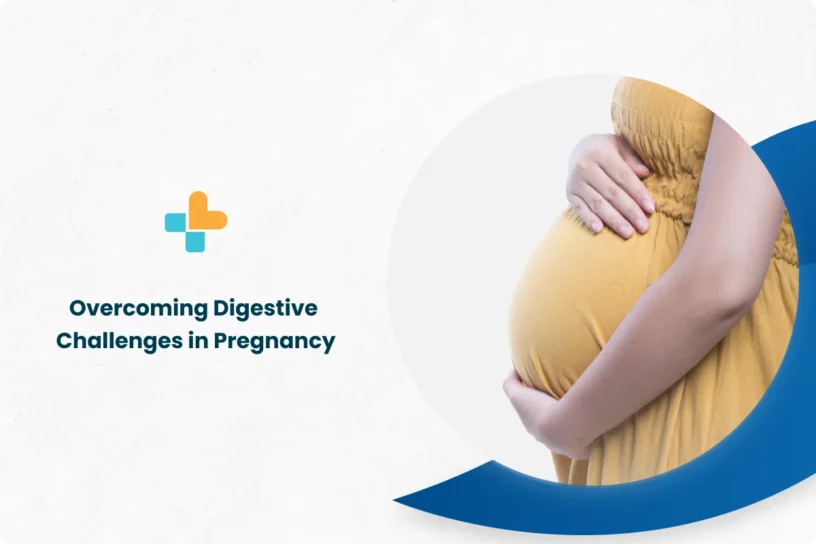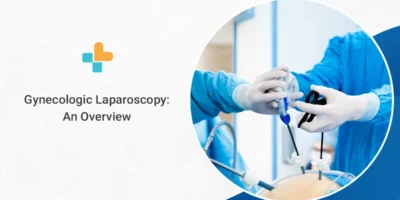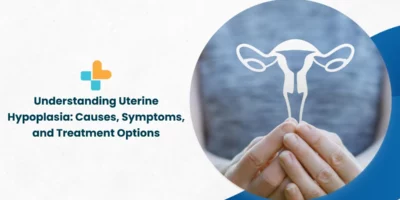Some women experience gastrointestinal problems that get worse and stand out more when pregnant. One reason is the fluctuating hormone levels in the body. The reduced quantity of room in the stomach for the organs is another aspect that contributes to digestive problems in pregnancy. Therefore, the large and small intestines are the organs that experience the most stress and movement. However, there’s no need to worry or lose sleep about this. This blog discusses the digestive issues faced in pregnancy and tips to overcome those. Read till the end.
Digestion problems in pregnancy
Pregnancy may trigger several digestive issues, the most common of which are discussed below:
Pregnancy-related heartburn
Heartburn is a typical pregnancy symptom. Heartburn and acid reflux can be brought on by fluctuations in hormone levels and body composition. This can occur more often before the third trimester. As the baby grows and the uterus expands, stress is exerted on the stomach that may push the acid upwards. The usual symptom is a burning feeling in the chest, accompanied by burping and bloating.
Pregnancy-related constipation
Generally, two reasons contribute to constipation during pregnancy. Firstly, an increase in the levels of progesterone hormone reduces gut motility i.e the food moves very slowly through the guts.
Secondly, the mother consumes several vitamins and supplements, which might be responsible for constipation.
Pregnancy-related gas and bloating
Pregnancy-related gas is extremely typical. Progesterone, a hormone that calms all of your muscles, including those in your digestive tract, is produced by your body while you are pregnant. The expansion of the uterus after the first trimester may also add up to this, causing further bloating.
Nausea and vomiting
Usually, nausea and vomiting, especially during the early pregnancy days, indicate fewer chances of a miscarriage. It is one of the common digestive problems in early pregnancy. According to scientific research, a hormone called human chorionic gonadotropin (HCG), released from the placenta, is responsible for vomiting and nausea.
Hyperemesis gravidarum
It is a rare condition when nausea and vomiting get very severe. Usually, hospitalization becomes necessary to prevent acute dehydration. Usually occurring between the fourth and sixth week of pregnancy, it could be at its worst during weeks nine and thirteen.
Gastroesophageal reflux disease (GERD)
GERD is a disorder in which stomach acid gets repeatedly pushed up to the esophagus. This is also known as heartburn, where the acid irritates the esophageal lining and causes discomfort and a burning sensation.
Gallstones
Due to higher levels of estrogen in the body, pregnant women tend to develop stones in the gall bladder. The elevated estrogen levels trigger cholesterol levels in bile to rise, leading to stone formation.
Tips to relieve digestion problem
The following tips are quite effective in relieving digestion problems in pregnancy:
Eat a healthy diet
The list of nutritious foods good for digestion in pregnancy, which you can include in your diet is provided below:
- Fruits such as apples, bananas, avocados, kiwis, papaya, etc.
- Vegetables such as beans, asparagus, cucumbers, beets, corn, carrots, etc.
- Lots of protein foods such as eggs, lean meats, tofu, nuts, etc.
- Multigrain bread, pasta, and cereals.
Eat slow, smaller, and more frequent meals
Digestion is aided by eating small, frequent meals at periodic intervals. Whenever we eat little, frequent meals, it makes it easier for the stomach to process and absorb minerals and vitamins from the food.
Exercise or take a short walk
Regular physical activity aids in the digestion of meals which may take much longer in the stomach and small intestine.
Drink a lot of fluids
Water consumption before, during, and after meals aids in the digestion and absorption of nutrients. Additionally, consuming lots of fluids helps to soften feces, assisting in the prevention of constipation. It is one of the easy home remedies for digestion problems in pregnancy.
Medication
It is important to consult a doctor before consuming medications, to get the perfect dosage that’s safe during pregnancy. If your digestive issues are severe, chronic, or impossible to control with lifestyle changes, the doctor may prescribe medications such as antacids, antidiarrheals, etc.
When to Consult Doctor
It’s crucial to let your doctor know if you suffer any digestive problems, no matter how minor they may be. The finest ways to treat such symptoms can be suggested by him or her, and you can be checked for increasing problems during your pregnancy.
Contact your doctor as soon as possible if the symptoms worsen, are persistent, or last for a long time. If you experience any of the below-mentioned symptoms, you must seek immediate medical help:
- Drastic decrease in weight
Feces that are dark or bloody
- Vomiting blood
- Nausea and general fatigue.
Conclusion
As already understood by now, lots of pregnant women tend to experience digestive problems in pregnancy. They wonder “how to speed up digestion during pregnancy?” So it’s necessary to get the necessary information to control digestive issues easily. For that, Ayu Health are your best bet. With a team of experienced doctors, every guidance will be available to make the pregnancy journey smooth. What are you waiting for? Contact 636-610-0800 to learn more about the services available.
Our Hospital Locations
Gynaecology Surgery Hospitals in Chandigarh | Gynaecology Surgery Hospitals in Bangalore | Gynaecology Surgery Hospitals in Jaipur | Gynaecology Surgery Hospitals in NCR | Gynaecology Surgery Hospitals in Hyderabad
Our Doctors
Gynaecology Surgery Doctors in Chandigarh | Gynaecology Surgery Doctors in Bangalore | Gynaecology Surgery Doctors in Jaipur | Gynaecology Surgery Doctors in NCR | Gynaecology Surgery Doctors in Hyderabad
About the Author

Dr. S. Goel
Dr. S. Goel is a renowned Internal Medicine Specialist currently practicing at Ayu Health, Bangalore. He is a Specialist in Internal Medicine, Diabetes HTN, Paediatric Care, and Family Medicine.




